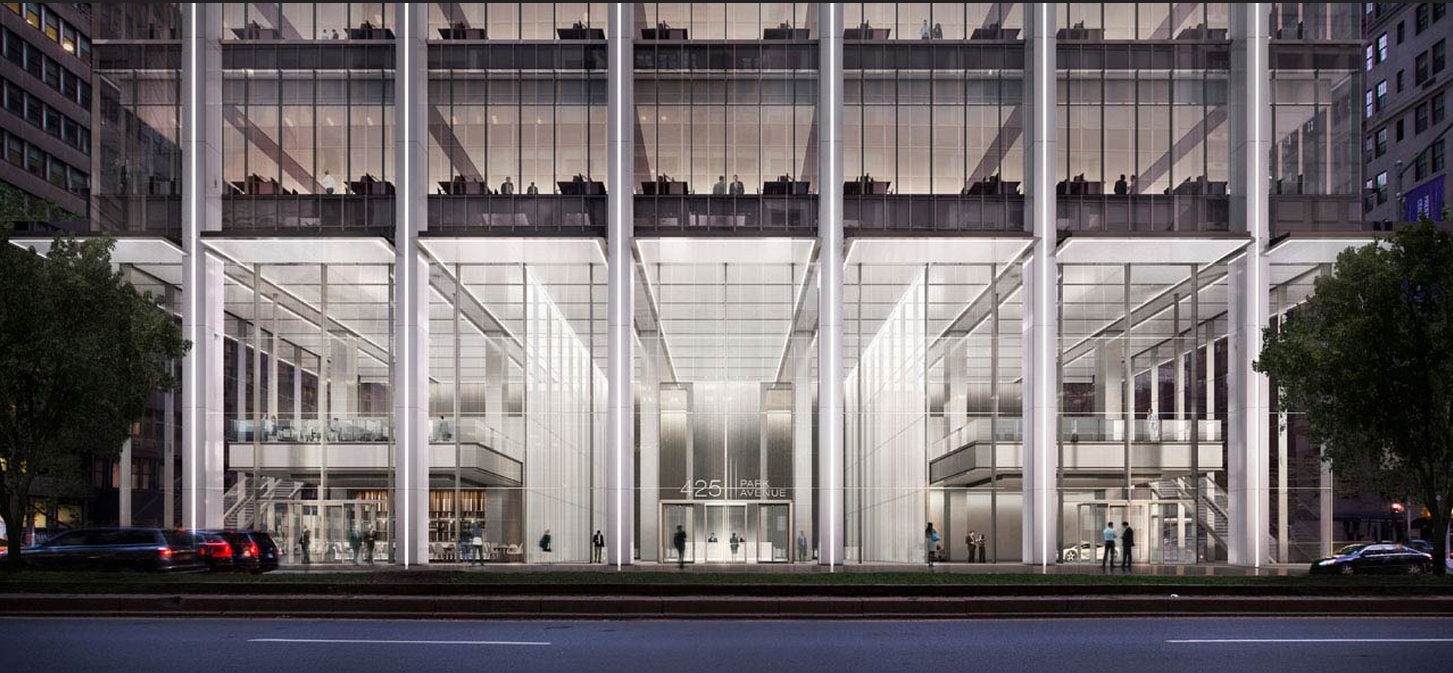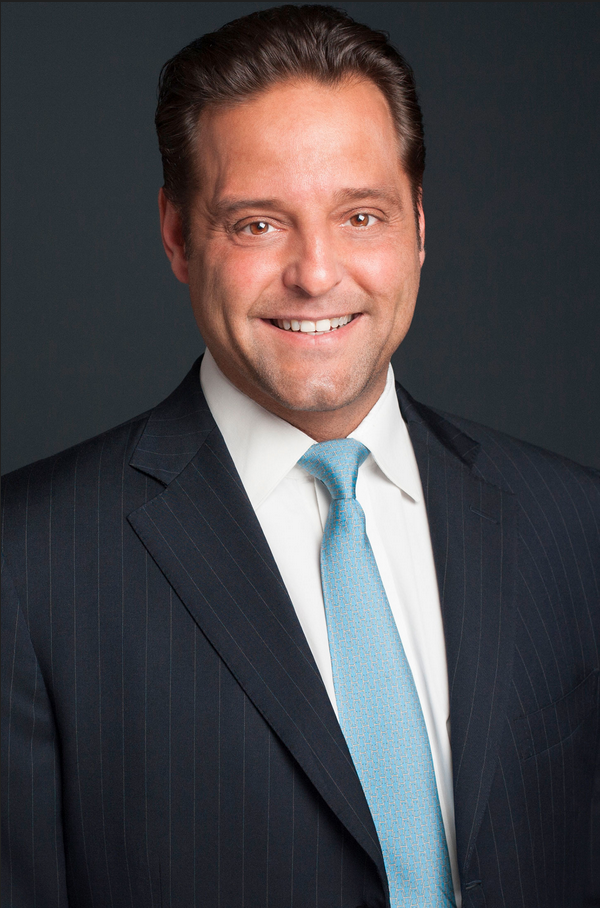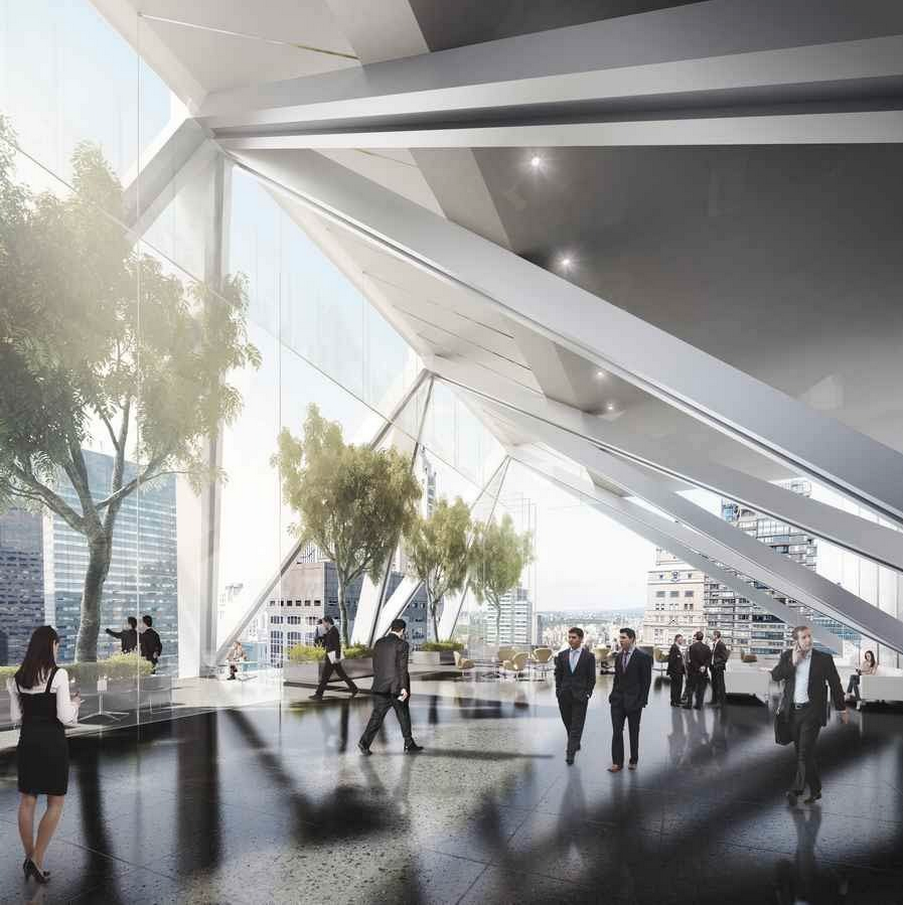'Healthy buildings' make happy workers, they say. The pitch could make them a fortune, if their bet on wellness in real estate pans out.
Last October a New York startup called Delos, founded by twin brothers who were once partners at Goldman Sachs, published what may be the most marketable proposition in real estate short of a front lawn overlooking the Fountain of Youth.
It's a manual they called The Well Building Standard and styled after the U.S. Green Building Council’s Leadership in Energy and Environmental Design (LEED) program. It offers a set of guidelines for designing buildings that promise to make people happier, healthier, and more productive—just by being inside them.
Which sounds like a pretty good deal, considering the myriad threats to good health lurking in your average office building. Salty snacks, stale air, bad lighting, carpets that spit up VOCs, elevators that promote your sedentary lifestyle.
“This could be bigger than anything in real estate since the invention of the roof,” Scialla says. He and Peter have spent the last five years building a sprawling set of ventures under the Delos umbrella to improve life indoors and, they hope, make a buck. Those include a public benefit corporation (a portion of profits go to charity) to administer the Well Building Standard, a consulting operation, and a venture arm that invests in new technology. Also a line of business that’s partnering with Leonardo DiCaprio to develop an eco-resort off the coast of Belize and that retrofits hotel rooms with features like a dawn simulator alarm clock and shower water infused with vitamin C.
Those include a public benefit corporation (a portion of profits go to charity) to administer the Well Building Standard, a consulting operation, and a venture arm that invests in new technology. Also a line of business that’s partnering with Leonardo DiCaprio to develop an eco-resort off the coast of Belize and that retrofits hotel rooms with features like a dawn simulator alarm clock and shower water infused with vitamin C.
The challenge now is convincing architects, builders, corporations, office workers, and hotel guests that the promise of buildings that promote healthier living can be fulfilled. “Who’s going to say they don’t want healthier spaces?” says Scialla, 41. “The doubts, or the follow-on questions, are: I love it, but can it really be done?’”
“I think the wellness movement is going to grow and become of paramount importance in the decades ahead,” Vinik says.
For a revolutionary idea, it's pretty old. People moved indoors a long time ago to stay safe and warm. Indoor plumbing is one of the great public health innovations in human civilization. The design and public health professions were closely aligned beforediverging in the early 20th century, according to the American Journal of Public Health. The two fields began to converge again about a decade ago, amid increasing concern about obesity and environmental sustainability.
That spawned reams of research on subjects like the health benefits of stairwells and the relationship between noise pollution and mental health, and interest from a wide variety of players. One initiative, sponsored jointly by the Robert Wood Johnson Foundation and the Federal Reserve Bank of San Francisco, suggested that health outcomes should be the concern of anyone financing urban renewal projects. Wellness became a watchword in luxury condominiums and affordable housing.
As those lines of research were gathering steam, Scialla was running cash trading for U.S. interest rate products at Goldman, and reading about environmentally conscious buildings. “Every article I read was screaming the word sustainability,” he said. “Like green, green, green. I thought, ‘That makes sense, but what about people?’ ”
Soon the Scialla brothers were experimenting on their Manhattan loft, installing amenities including cork floors to improve posture and a filtration system that infuses the air with aromatherapy. In March 2013, they left Goldman to run Delos full time. (Their sister, Crystal Scialla, is the company's general counsel.) Later that year, they started marketing luxury condos in Manhattan’s East Village that had been decked out with wellness features. Deepak Chopra, the best-selling author and a member of Delos’s board, bought one. The penthouse, most recently listed for $30.5 million, was reportedsold earlier this month.
Delos doesn’t plan to develop any more buildings itself, Scialla said. Instead, it is courting developers to adopt the Well Building Standard so it can profit from services and fees associated with the certification process, whoever puts the buildings up. It costs up to $10,000 to register a building with the International Well Building Institute (IWBI), Scialla's public benefit corporation, and from 8 to 23 cents per square foot to go through the certification process; for office buildings, that usually works out to less than $100 per employee, Scialla says.
Builders are currently seeking Delos certification for 20 million square feet of real estate, still a fraction of the market the Scialla brothers dream of. That includes a $2 billion mixed-use project along the Tampa waterfront being developed by Vinik’s Strategic Property Partners and Cascade Investment that will feature landscaping designed to cut down on pollen and air pollution meters to tell joggers the best times to start a run.
Now the challenge is convincing developers to build healthier buildings, and to hire Delos to help. Later this year, IWBI plans to certify 1,500 accredited professionals to administer the Well Building Standard. Earlier this month, Delos announced plans to fund a lab at the Mayo Clinic to study wellness in the built environment.
"Metrics are challenging when it comes to this topic. We can’t say buildings make you healthier,” says Suzanna Kelley, managing director for strategic initiatives at the American Institute of Architects. The organization is teaming up with academic institutions on research into wellness and buildings, but Kelley cautions that “humans lead complex lives intertwined with many kinds of factors. Because you work in one sort of building doesn’t mean you’re not going to get cancer or have a heart attack someday.”
Still, office workers don’t have to live forever to make these solutions work for landlords and tenants, who can offer them as a way to attract employees.
A few years ago, the commercial real estate firm CBRE did away with assigned workspaces at its Los Angeles headquarters and had employees choose where to sit each day. That promiscuous arrangement seemed like a good idea, until someone caught a cold. CBRE’s search for a solution led the company to Delos, which suggested using ultraviolet lights to sterilize shared work-spaces at the end of the day. While it was at it, CBRE decked out the L.A. office with 50 wellness features, including ergonomic furniture, a juice station, and non-porous countertops to discourage bacterial growth.
“We said, wouldn’t it be interesting if we could create an environment where people could be more productive,” says Lewis Horne, president of CBRE’s Greater Los Angeles office. “What if we could make people feel healthier? What if we could make them feel better about being here?”
Horne doesn't know how many sick days the upgrades have saved, but internal research shows that 92 percent of new employees said the new space has improved their sense of well-being.
“I think it’s helped with recruiting,” Horne says.
(Delos is no longer named Delos Living, as an earlier version of this story had it.)
Reference: http://www.bloomberg.com/news/


